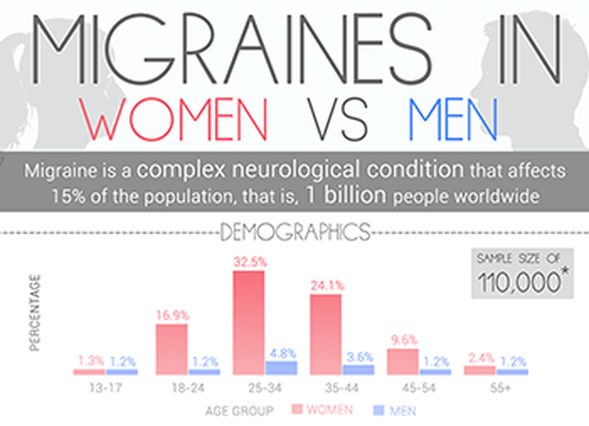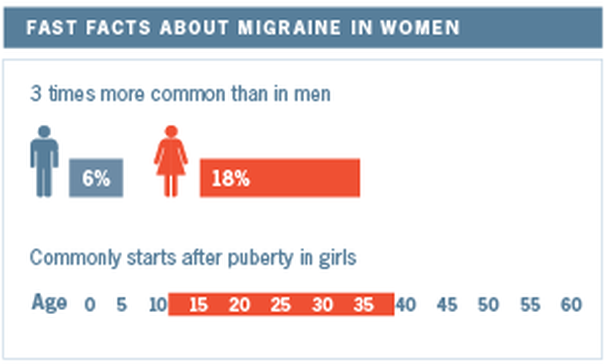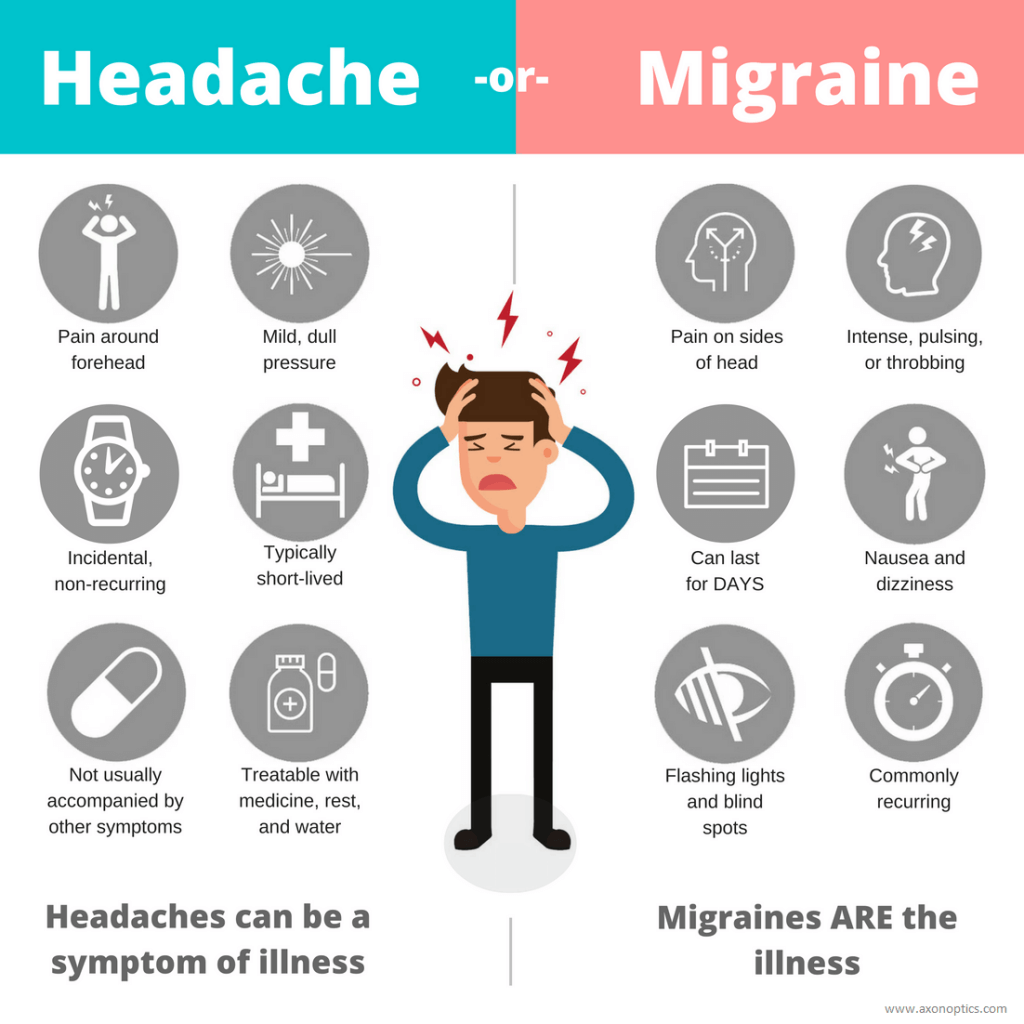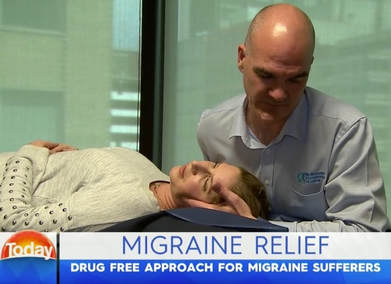"Headache of cervical origin and migraine often shows similar clinical presentation."For the clinician, pain presentations in the headache patient are frequently a diagnostic challenge.”
Goadsby PJ, Bartsch T. Anatomy and physiology of pain referral patterns in primary and cervicogenic headache disorders. Headache Currents 2005;10:42-48. |
What is a Menstrual Migraine Headache?
A menstrual migraine makes your periods tougher. If you experience a headache before two days of your periods or if you have a headache during the first three days of flow and if a headache is severe and sensitive to light, you have a menstrual migraine. The severity of a headache is such that it can prevent you from doing your day to day activities. You may experience a migraine headache on one side and few symptoms such as vomiting sensations may accompany it.
Do I Have a Menstrual Migraine Headache?
The medicines that you use to treat your migraine, may not work well for a menstrual migraine. Menstrual hormones are the reason for it. During, before and after your periods, you have lower levels of a hormone known as estrogen, which triggers a migraine. You may also experience a migraine during your ovulation.
*Hormone is a chemical substance which has many actions that affect your body.
*Ovulation is the time when your body releases the egg and you are capable of reproducing.
If you experience a migraine only during your periods, we call it a pure menstrual migraine, while if you experience a migraine before or after your periods, we call it a menstrual related migraine.
*Hormone is a chemical substance which has many actions that affect your body.
*Ovulation is the time when your body releases the egg and you are capable of reproducing.
If you experience a migraine only during your periods, we call it a pure menstrual migraine, while if you experience a migraine before or after your periods, we call it a menstrual related migraine.
|
Symptoms that may be experienced include
|
What causes a Menstrual Migraine Headache?
- Any disturbance in the nerve pathway especially in your upper neck sensitizes your brainstem and causes a migraine. We can confirm by examining the upper three joints of your neck.
- Migraine can be hereditary. Any abnormal activity in your brain which affects your nerves, blood vessels, and chemicals in your brain causes migraine. Your genes may be making you more prone to migraine triggers.
- Migraines are more common when you are in your thirties. Boys are more prone to headache than girls. However, by puberty and beyond, girls may be more prone to migraine than boys.
Treatment of a Menstrual Migraine Headache?
|
For long term relief, call the team on (07) 5547 5665
80% of our migraine patients feel at least 80% relief in their migraine even after 12 years of treatment! You just need 4 to 5 treatment sessions to feel much better! We use a scientific approach known as Watson approach which is the latest treatment option but is helping migraine patients in 25 countries already! We desensitize your brain stem and relieve your migraine, that too with no side effects! Medicines give you only a temporary relief and also cause side effects. Midical treatment for the menstrual related migraine is different from migraine treatment. For a menstrual migraine, you need three types of treatments:
Triptans, DHE/ Dihydroergotamine, NSAIDS/ Non-Steroidal Anti-Inflammatory Drugs, and AAC/ a combination of aspirin, acetaminophen and caffeine help you when you have acute/ severe attacks of a menstrual migraine. Triptans are also available in the injectable and nasal forms.
In addition, regular exercise, maintaining a healthy weight, and a healthy sleep help you prevent and get over many diseases including a migraine. Meet us at the migraine and headache clinic today to manage your menstrual migraine better. |
What triggers Menstrural Migraine Headache?
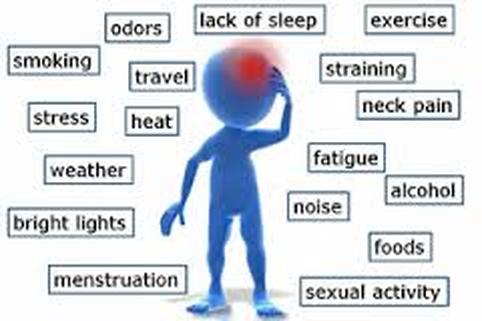
Here are 5 major triggering factors for migraine
- Hormonal changes such as menstruation, pregnancy, menopause/ no more periods, and oral contraceptives may trigger or worsen migraines. This is due to a drop in the hormone known as estrogen. Therefore, some women experience migraine two days before periods or during periods or three days after their periods when their estrogen is low. Few women experience migraine only during their periods and this is known as pure menstrual migraine. Some women experience migraine before or after their periods ad this is known as menstrual related migraine. *Hormone is a chemical substance which has many actions.
- Dietary changes such as skipping meals/ fasting/ having processed foods may trigger migraine in some. Additives such as MSG/ Mono Sodium Glutamate and artificial sweeteners such as aspartame, strong coffee/ beverages with high caffeine, and alcohol may trigger migraine in some. Dehydration/ drinking less water than you should, chocolates, citrus fruits such as orange and cheese also can trigger migraine.
- Changes in the surroundings such as bright lights, loud sounds, sun glare, and strong smells such as that of a second-hand smoking or a paint thinner can cause migraine in some.
- Physical changes such as a change in the sleeping pattern, lack of sleep, physical exertion, stress, anxiety, poor posture, low blood sugar or weather changes can be triggers.
- Medicines such as sleeping pills and contraceptive pills or any pills which have hormones such as estrogen may trigger migraine.
